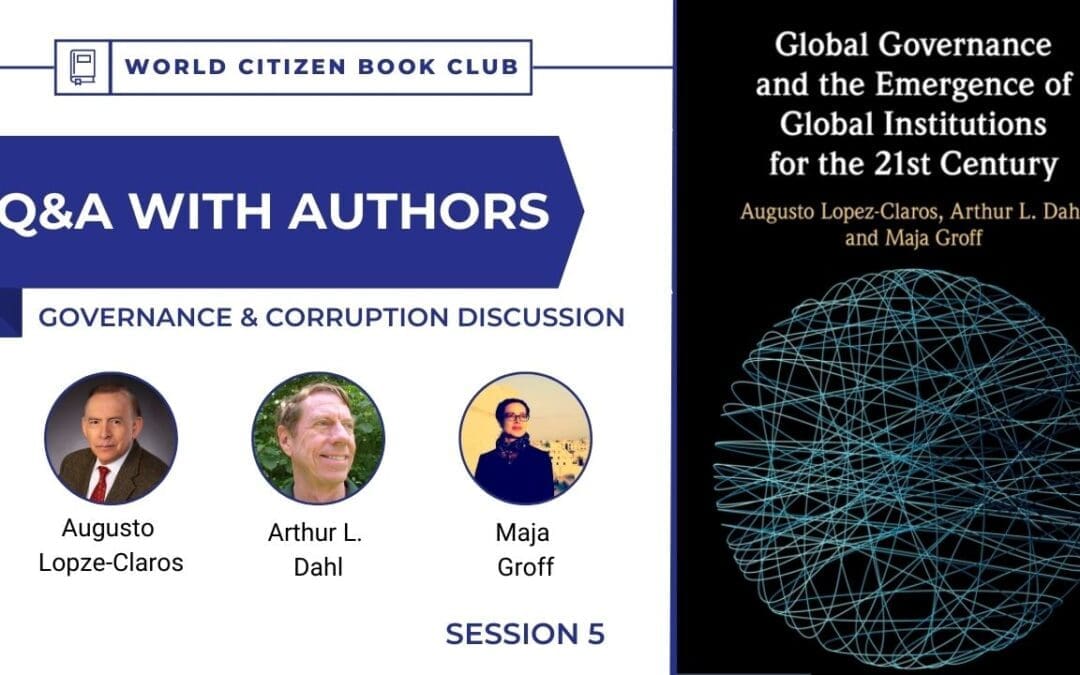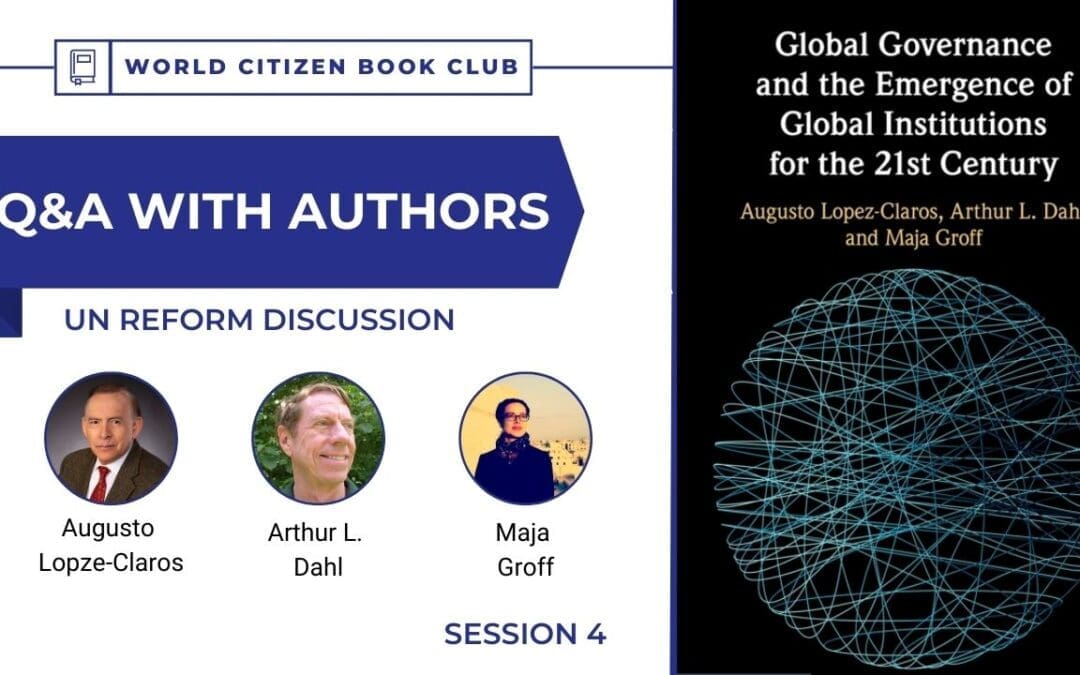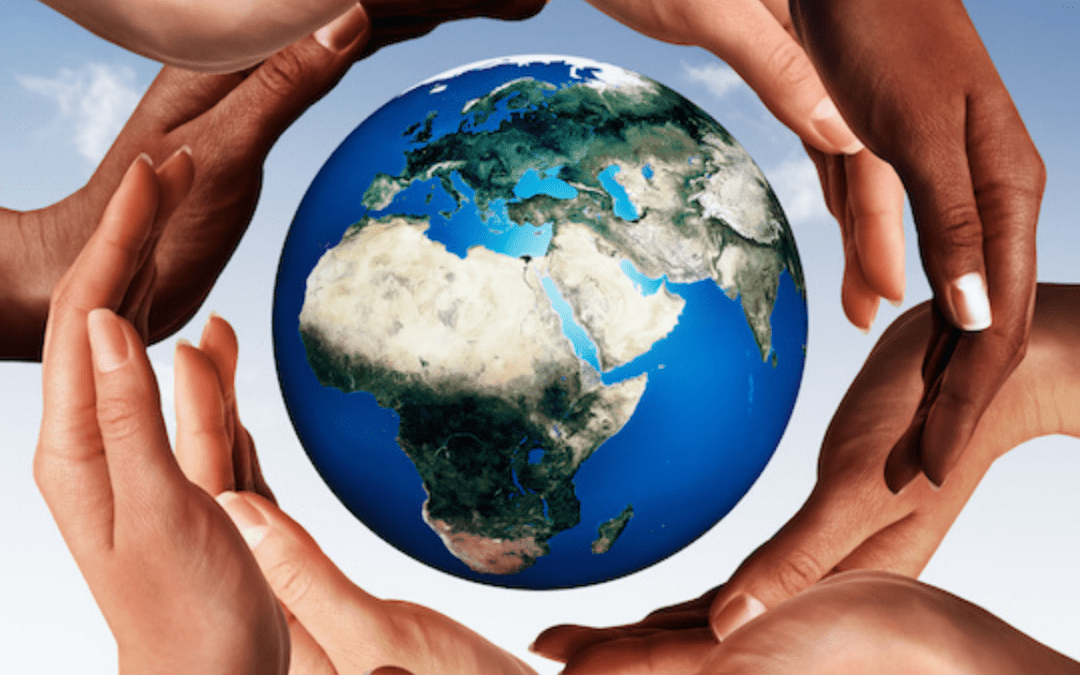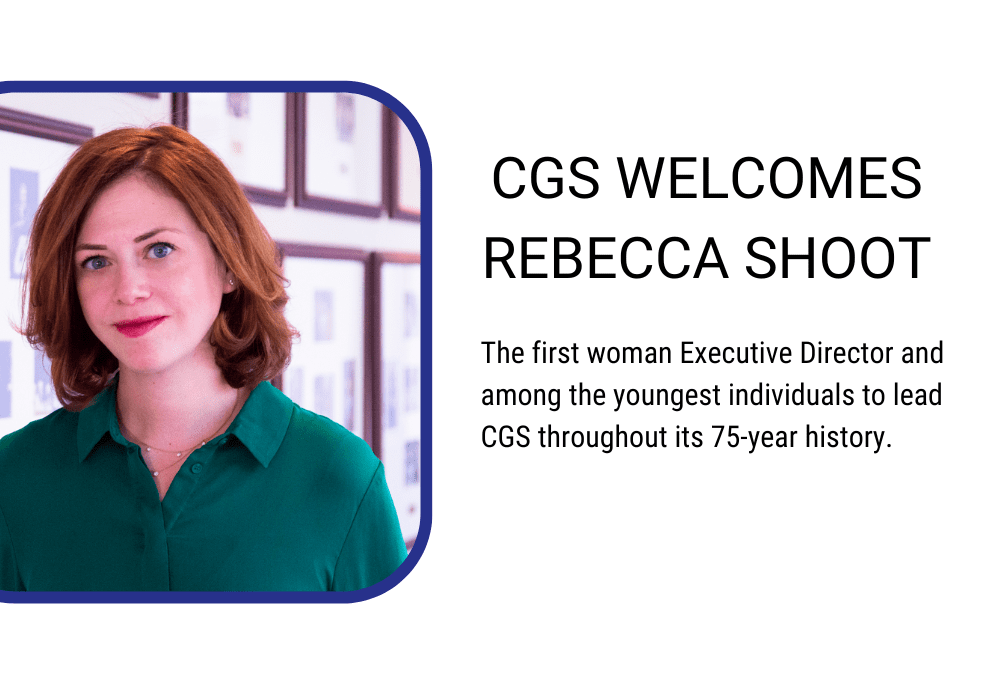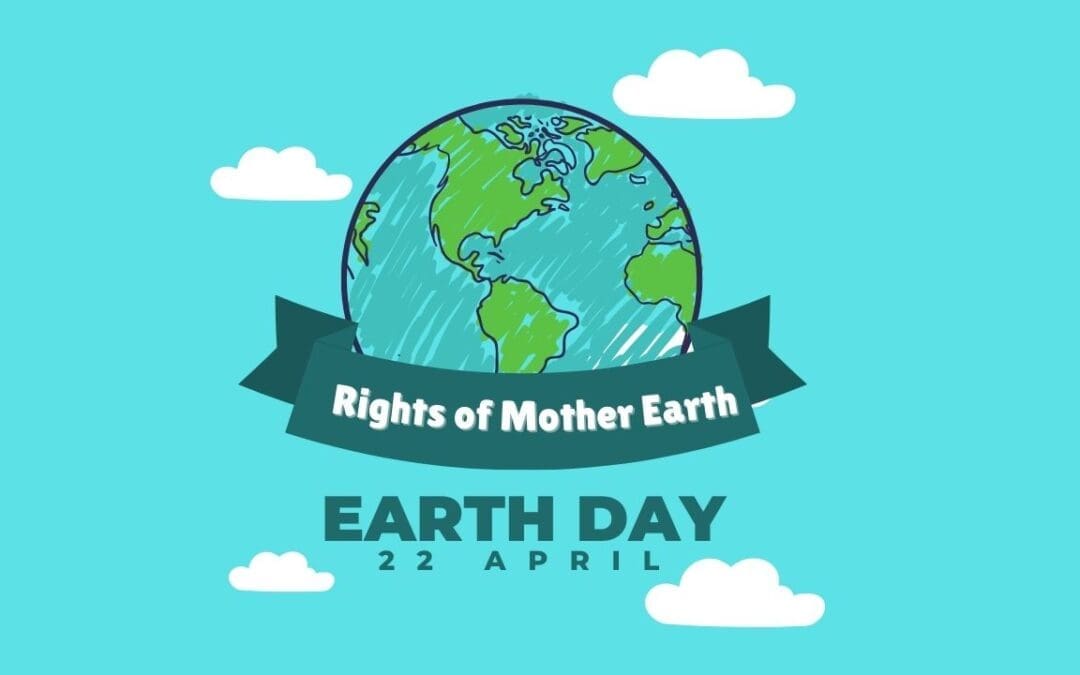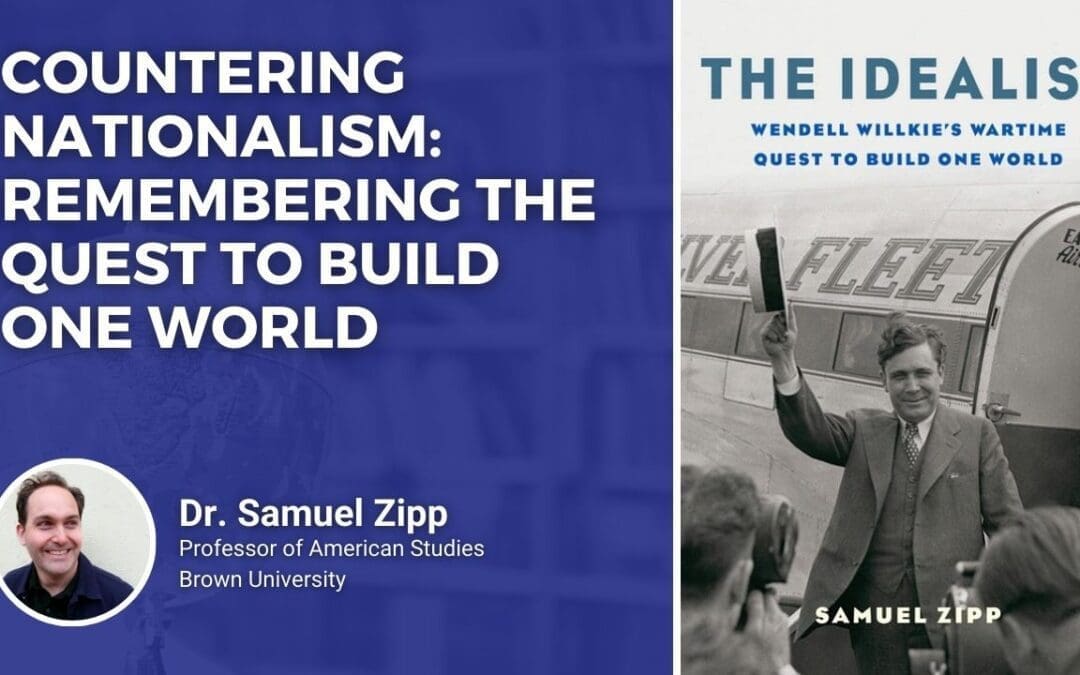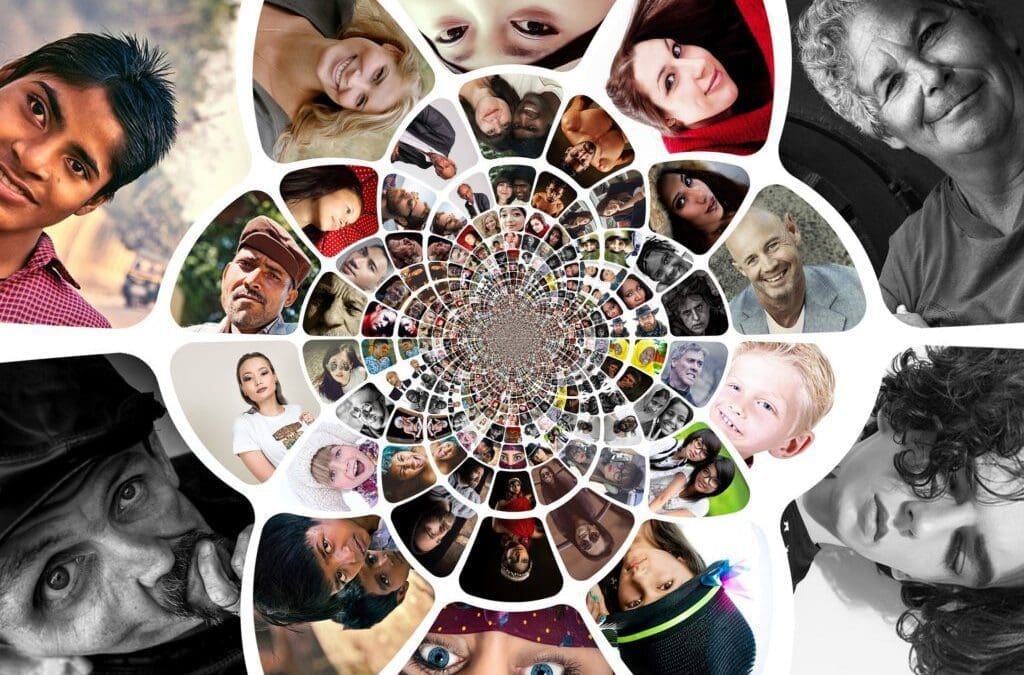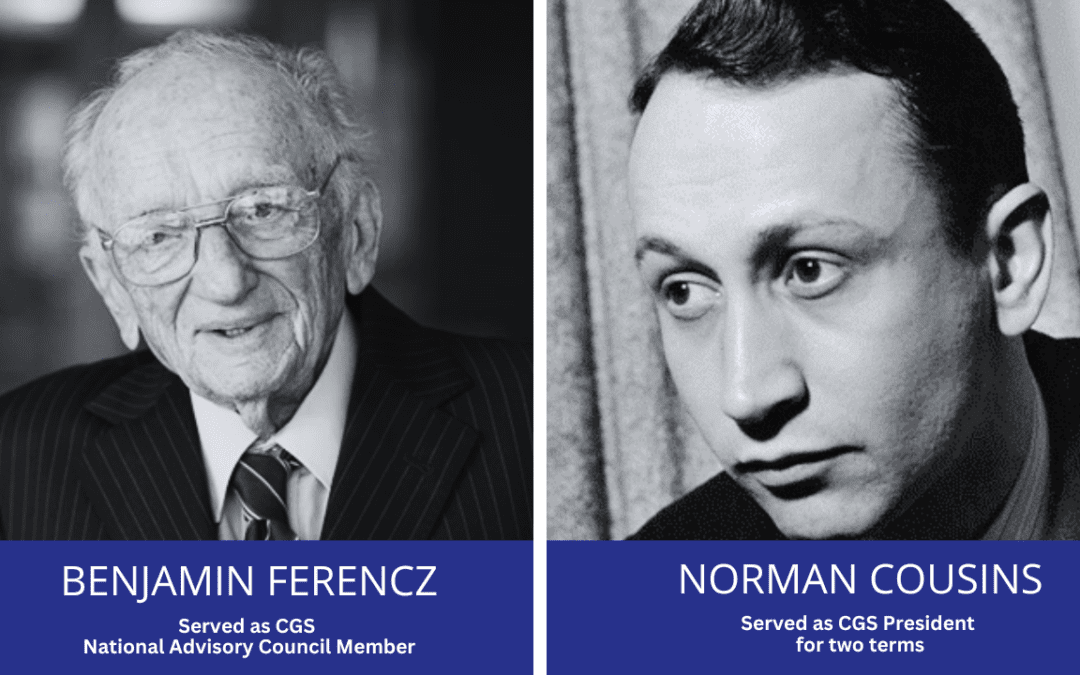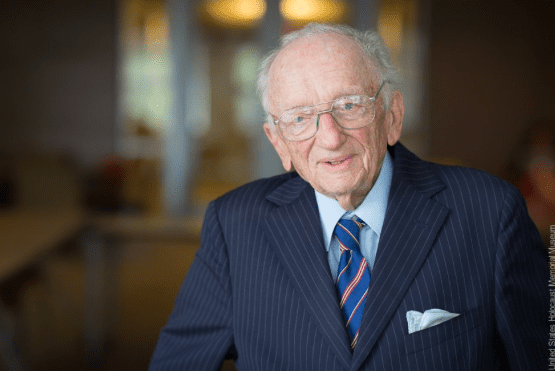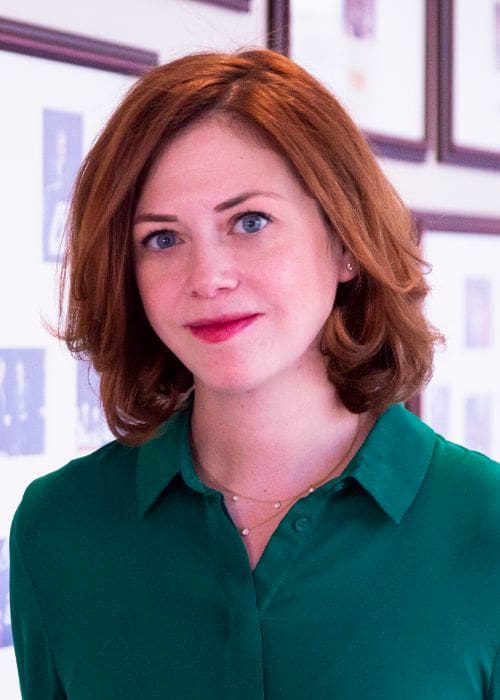
by Citizens for Global Solutions | Jun 10, 2023 | Past Event
Session 5 of the book, Global Governance and the Emergence of Global Institutions for the 21st Century (2020) with all three authors, Augusto Lopez-Claros, Arthur Dahl, and Maja Groff. This session’s final discussion will include additional insights on the topics of corruption, education, values and principles to operationalize global good governance, immediate steps forward, and conclusions.

by Citizens for Global Solutions | May 29, 2023 | Organizational Statement
Washington, D.C. On May 21, Citizens for Global Solutions (CGS) and Young World Federalists (YWF) joined UNESCO, the UN, and civil society throughout the world in commemorating the World Day for Cultural Diversity for Dialogue and Development. In doing so, we recognize the centrality of the intertwined values of cultural diversity and intercultural dialogue to humanity, as well as their necessity to achieve the Sustainable Development Goals (SDGs) and foster world peace.
Why is it necessary to reflect on and honor Cultural Diversity for Dialogue and Development? Twenty years ago, the UN General Assembly established the World Day for Cultural Diversity for Dialogue and Development (A/RES/57/249). The necessity of recognizing this day is threefold:
First, the ability to practice and thrive in one’s culture is a universal, inalienable, and interdependent human right. Originally enshrined in the core human rights documents, the 2030 Agenda for Sustainable Development now proclaims, “We pledge to foster intercultural understanding, tolerance, mutual respect, and an ethic of global citizenship… and recognize that all cultures and civilizations can contribute to, and are crucial enablers of, sustainable development.” Target 11.4 explicitly states the goal of “strengthen[ing] efforts to protect and safeguard the world’s cultural and natural heritage.”
Second, respect for cultural heritage and intercultural dialogue is essential for peace. According to the UN, 89% of all current conflicts worldwide occur in countries that lack strong intercultural dialogue. Further, “[t]hree-quarters of the world’s major conflicts have a cultural dimension. Bridging the gap between cultures is urgent and necessary for peace, stability and development.”
Third, culture plays a vital role in advancing economic growth and realizing other SDG targets, such as environmental sustainability. According to UNESCO, the specialized UN agency charged with fostering international cooperation regarding scientific, educational, and cultural issues, the creative and cultural fields generate 48 million jobs worldwide (particularly for young people), which account for 6.2% of all employment and 3.1% of global GDP. Regarding environmental targets, as one example, weaving intangible cultural heritage into agricultural and environmental policies can enhance sustainable food production and environmental conservation.
What international mechanisms animate these principles? The United Nations and its entities have furthered several instruments to promote cultural diversity and intercultural dialogue. For example:
- To more effectively analyze the role of cultural diversity in realizing the SDGs and promote its incorporation in national and international development plans, UNESCO created the UNESCO Culture|2030 Indicators framework, which provides an expansive overview of the intersection of cultural heritage and the SDGs.
- To strengthen public awareness of how cultural diversity can advance the SDGs and stimulate international cooperation to embed cultural rights and issues in public policy, UNESCO convened MONDIACULT 2022 conference in Mexico in September 2022. This groundbreaking summit led to the adoption of the “Declaration of Culture,” which identified culture as a “global public good” and called for public policies to protect specific cultural rights such as the right of indigenous communities to preserve their cultural heritage.
- To spur intercultural and interreligious dialogue aimed at reducing discrimination and fostering intercultural solidarity, the UN has advanced initiatives such as the United Nations Alliance Among Civilizations (UNAOC), which organizes activities around the themes of Education, Youth, Migration, Media, and Women as Peace Mediators.
Moreover, there are now true for a for accountability for violations of cultural rights. The International Criminal Court (ICC) recently affirmed the connection between cultural heritage and human rights by convicting the leader of a group who oversaw the destruction of religious and cultural sites and buildings in Timbuktu, Mali, of war crimes. The Mayan Q’eqchi’ community recently took the Guatemalan government to the Inter-American Court of Human Rights, alleging that the government’s approval of mining operations on their territory violated their collective rights to ancestral lands and natural resources.
How can we, as global citizens and world federalists, advance this agenda? One thing is certain; we must act quickly to foster this vital dialogue. As Kofi Annan said, “Without this dialogue taking place every day among all nations – within and between civilizations, cultures and groups – no peace can be lasting and no prosperity can be secure.” How can this vision become reality?
- Proactive government engagement. While the UN must continue to engage, it is also incumbent upon national governments to actively enhance intercultural dialogue. For example, governments at all levels can engage in cultural diplomacy bilaterally with counterparts and through the UN system, drawing on cultural heritage and diversity to enhance mutual understanding and cooperation on such global issues as climate change and conflic A recent high-level forum led to the adoption of the “Roadmap for the International Year of Dialogue as a Guarantee of Peace” a series of events throughout 2023, including multilateral discussions, debates, and youth activities.
- Civil society leadership. Civil society also plays a key role in this respect. For example, civil society can advocate at the ninth session of the Conference of Parties to the Convention on the Protection and Promotion of the Diversity of Cultural Expressions, which will take place from June 6 to 8, 2023, to urge governments to adopt the 2005 Convention that provides a new framework to effectively protect and promote the diversity of cultural expression.
- Intergenerational action. At CGS and YWF, we recognize that promoting, preserving, and protecting cultural diversity and intercultural dialogue is a generational enterprise. World Federalist organizations are putting youth at the center of programming to elevate their voices. Below is a list of several initiatives undertaken by various world federalist organizations:
About Citizens for Global Solutions & Young World Federalists
Citizens for Global Solutions (CGS) is a non-governmental, non-profit, non-partisan membership-based organization that for more than 75 years has brought together a diverse collective of individuals and organizations with a common goal of a unified world predicated upon peace, human rights, and the rule of law. From championing ratification of the UN Charter upon our establishment in 1947 to supporting creation of the International Criminal Court (ICC) 25 years ago to advocating for global instruments to confront today’s enduring challenges of war and climate degradation, CGS recognizes that true progress is a generational enterprise. We invite like-minded individuals and organizations to join us in this mission.
Young World Federalists
Young World Federalists (YWF) is a global movement fighting to give humanity a voice. We envision a sustainable, just, and peaceful world through a democratic world federation. A world run by humanity, for humanity, providing equal opportunity to all on a thriving planet. YWF is currently engaged in a #SaveEarth campaign, which is focused on prosecuting crimes against the environment, taking effective action on climate change, and building a sustainable economy.
Contact: Rebecca Shoot, Executive Director, Citizens for Global Solutions at outreach@globalsolutions.org

by Citizens for Global Solutions | May 13, 2023 | Past Event
Session 4 of the book, Global Governance and the Emergence of Global Institutions for the 21st Century (2020) with authors, Augusto Lopez-Claros and Arthur Dahl. This session’s discussion focuses on UN specialized agencies to address global risks, inequality and the private sector, financial architecture and the IMF, responding to global environmental crises, and population and migration.

by Sovaida Maani Ewing | May 4, 2023 | Global Cooperation
Lessons Repeat Themselves Until Learned
One of the inescapable features of human existence is that lessons we fail to learn repeat themselves over and over, usually with increasing ferocity until the lesson is learned. This principle applies not only to our individual lives, but to humanity’s collective life as well. One of these global lessons that has been repeating itself with ever-increasing intensity is that localized or regional conflicts have global repercussions.
A good example is the war in Syria, which spawned a number of crises that impacted countries far beyond its border. One of them was the refugee crisis, which affected not only Syria’s immediate Middle Eastern neighbors like Lebanon, Jordan, and Turkey but had far-reaching effects in Europe as well. The wave of refugees washing up on Europe’s shores was a driving force in the rise of right-wing governments in several countries. It was also one of the factors that precipitated Brexit, as the United Kingdom frantically attempted to take control of its own destiny and limit the flow of unwanted refugees to its shores.
The Syrian conflict also created fertile conditions in Syria and Iraq that allowed ISIS to flourish and carry out brutal acts that impacted the citizens of many nations near and far. In addition, the civil war in Syria resulted in the creation of what some of the media referred to as a “proto world war,” as countries arrayed themselves on opposing sides of a widening conflict.
We Missed the Opportunity to Learn from the War in Syria
Unfortunately, the international community failed to grasp the opportunity arising from the conflict in Syria to devise a global mechanism to end the Syrian conflict. It is therefore no surprise that one of the most pressing conflicts of the day, Russia’s war against Ukraine, has left our global leaders paralyzed, dithering, taking half-measures and seemingly unable to take the kind of decisive and effective action that would have nipped it in the bud before it festered into the global morass it is today.
The War in Ukraine Has Triggered Several Global Crises
This latest regional conflict has been having its own world-encircling impact: indeed, it has been responsible for triggering several global crises. They include a global food crisis that has resulted in food shortages and the rise in the price of bread, a staple food which so many, especially in the poorest nations, rely on for survival. The Ukraine conflict has also sparked a global energy crisis as the flow of natural gas from Russia, on which many countries have relied, has significantly diminished. The result has been a spike in the price of energy across the world, including the richer nations of Europe. In the U.K. alone, the cost of heating homes has risen dramatically, causing much economic pain. As though this were not enough, the war has contributed to the rise of stubborn inflation worldwide which is having a significant and deleterious impact on the global economy. Some, including the World Bank, fear that we will soon find ourselves in a global recession.
To add to all these global crises, the nations of the world are dividing themselves into two opposing camps with the United States, Europe, Japan, South Korea, Australia and New Zealand arrayed on one side and Russia, China, Iran, North Korea, and possibly India on the other. This level of global polarization constitutes a threat to global peace and security. In the past, it has led to world wars, a consequence we want to avoid at all costs. The threat is exacerbated by the increasing worry that nuclear weapons may be used either accidentally or deliberately by one of these nations in a moment of heated miscalculation, triggering a nuclear war, which, even if limited geographically, would have disastrous consequences for humanity.
It’s Time to Revisit President Wilson’s 14 Points and the Atlantic Charter
The ever-increasing cascade of crises points to the imperative need for the international community to devise a viable global system of collective security that is capable of ensuring international peace. It is time for the world to revisit and finally implement two principles proposed by two American presidents in the early and middle parts of the twentieth century.
The first is the principle that was proposed by President Woodrow Wilson in 1918 as part of his 14 Point program which called for limiting the number of arms each nation can possess to the smallest amount consistent with domestic safety. Alas, the world failed to implement this recommendation when it created the League of Nations in the aftermath of the First World War. It failed to do so at its peril and suffered another devastating world war. The world then missed another opportunity to implement President Wilson’s recommendation when the United Nations was created after the Second World War.
The second principle that the world should seriously revisit and implement is set out in Article 8 of the Atlantic Charter, drawn up by U.S. President Franklin D. Roosevelt and U.K. Prime Minister Winston Churchill in August 1941. This principle called for nations to abandon the use of force “for realistic as well as spiritual reasons.” It, too, was never implemented.
The Key to Peace is Creating a Global System of Collective Security
Given the recent horrors humanity has experienced as a result of the conflicts in Syria and Ukraine (and in many other nations, including Yemen, Ethiopia, Myanmar, and Sudan), the international community may finally be ready to build a global system of collective security that is firmly grounded in these two foundational principles.

by Citizens for Global Solutions | Apr 26, 2023 | Press Release
Citizens for Global Solutions (CGS) Education Fund is delighted to welcome Rebecca A. Shoot as our next Executive Director, succeeding Bob Flax, who will serve as CGS President until his retirement at the end of July. CGS’s Board of Directors takes this opportunity to express immense gratitude to Bob for his inspiring leadership during his tenure as Executive Director and looks forward to his continued contributions.
The first woman and among the youngest individuals to lead CGS throughout its 75-year history, Rebecca brings nearly two decades of practical experience in the non-governmental, inter-governmental, and private sectors implementing initiatives that give life to CGS’s foundational vision of a unified world community predicated on democratic values, human rights, and the rule of law. Of Rebecca’s appointment, CGS Education Fund Board Chair Donna Park noted, “I am pleased that Rebecca is stepping into this leadership role for CGS. Her background, experience, contacts, energy, creativity and personality are valuable assets. I believe she will work collaboratively with the Board and staff to grow CGS and the international world federalist movement to deliver our vision of a peaceful, free, just and sustainable world community.”
In nearly a decade with the National Democratic Institute (NDI), Rebecca held numerous positions in headquarters and the field supporting and leading democracy and governance programs in Central and Eastern Europe and Southern and East Africa. She subsequently moved to a leadership role steering NDI’s Governance projects globally and directing programming for the bipartisan House Democracy Partnership of the U.S. House of Representatives. Rebecca created a global parliamentary campaign for Democratic Renewal and Human Rights as Senior Advisor to Parliamentarians for Global Action (PGA), an international network of legislators committed to collaboration to promote democracy, human rights, and the rule of law. Prior to that, she directed PGA’s International Law and Human Rights Programme and ran PGA’s office in The Hague. Most recently, she helmed global programming to promote gender equality and criminal justice reform for the American Bar Association Rule of Law Initiative (ABA ROLI).
Rebecca has spoken at high-level conferences and events on five continents (and increasingly, globally through online platforms). Her publications include the first Global Parliamentary Report (IPU & UNDP 2012), Political Parties in Democratic Transitions (DIPD 2012), and Navigating between Scylla and Charybdis: How the International Criminal Court Turned Restraint Into Power Play (Emory Int’l L. Rev. 2018), which was honored with the Emory International Law Review’s Founder’s Award for Excellence in Legal Research and Writing.
Rebecca is admitted to practice law in the District of Columbia and is a member of several bar associations, including the American Branch of the International Law Association (ABILA), where she serves as Advocacy Director for the International Criminal Court (ICC) Committee. She served as a Visiting Professional in the Presidency of the ICC and has provided pro bono legal expertise to The Carter Center, International Refugee Assistance Project, United Nations Working Group on Enforced and Involuntary Disappearances, and U.S. Marine Corps University, where she helped develop the international humanitarian law curriculum.
Rebecca earned a Juris Doctorate with Honors from Emory University School of Law, where she received several academic distinctions, including the David J. Bederman Fellowship in International Law and Conley-Ingram Scholarship for Public Interest Leadership. She earned a Master of Science in Democracy & Democratisation from University College London School of Public Policy and a Bachelor of Arts Magna Cum Laude in Political Science from Kenyon College. She holds certificates in Conflict Analysis from the U.S. Institute of Peace and in Public International Law from The Hague Academy of International Law.
As Executive Director of CGS, Rebecca will continue her current role as Co-Convener of the Washington Working Group for the International Criminal Court (WICC), a diverse coalition of human rights organizations, legal associations, former government officials, and leading legal professionals. CGS and WICC have a rich and intertwined history that this dual appointment brings full circle, with CGS formerly serving as host for the coalition and with several current and former common Board and National Advisory Committee members. She also acts, directs, and writes for the theater.
“It is a profound privilege and challenge to serve an organization with both a distinguished history and unwavering ongoing commitment to an idea that is simultaneously radical and fundamental: one world, free from conflict with humanity united to respect the rights of all individuals, peoples, creatures, and our planet itself. Shaped by some of the greatest minds of the last century, this vision could not be more relevant today. Beyond the opportunity to serve this most powerful mission, it is a personal delight to work with such committed and supportive individuals as compose the CGS staff and board.” – Rebecca A. Shoot

by Citizens for Global Solutions | Apr 22, 2023 | Organizational Statement
Let this Century be the Century of the Rights of Mother Earth: Strengthening Global Governance is Key to Ensuring a Sustainable Future
Washington, DC- On April 22, Citizens for Global Solutions (CGS) joins the United Nations and civil society throughout the world in celebrating International Mother Earth Day. On April 22, 2009, the Bolivian government proposed a resolution that was adopted by the United Nations General Assembly (UNGA) declaring every April 22 to be International Mother Earth Day. The resolution calls for “acknowledging that the Earth and its ecosystems are our home” and “promot(ing) harmony with nature and the Earth” to adequately address our environmental, economic, and social needs.
Evo Morales, the former President of Bolivia, strongly supported the adoption of this resolution, asserting during a meeting with the UNGA that “the twenty-first century is the century of the rights of Mother Earth and of all living beings.” During his speech, President Morales also stressed the importance of four, critical rights to which Mother Earth and all life on Earth are entitled: the right to life, the right to regenerate its biodiversity, the right to live a clear life (free of pollution and toxins), and the right to “harmony and balance with and among all and everything” (recognizing the interdependence of all life on Earth.) Furthermore, President Morales called for the incorporation of these four principles in the “Universal Declaration of the Rights of Mother Earth,” which was prepared during the World People’s Conference on Climate Change and the Rights of Mother Earth, hosted in Bolivia in 2010.
CGS and Young World Federalists (YWF) unconditionally support the principles and priorities enshrined in the Universal Declaration of the Rights of Mother Earth, and we strongly believe that ensuring a sustainable future for present and future generations can only be achieved by strengthening global governance and international environmental cooperation. Ramesh Thakur, former UN Assistant Secretary-General, argues that the “global governance deficit,” or the lack of global institutions that implement, interpret, and enforce international environmental laws and treaties, is among the factors that impede meaningful international action to address the climate crisis. Furthermore, Thakur asserts that a world order based on absolute national sovereignty- where countries are not held responsible for violating their environmental commitments- is a key cause of this lack of global environmental governance since it encourages political leaders to prioritize their own political interests over the well-being of Mother Earth.
How can we foster international cooperation and bolster global governance to address the climate crisis? One possible path forward is strengthening existing global governance institutions. This includes empowering the UNGA to pass binding international resolutions driving global emissions reduction efforts, particularly on the part of high emitting countries like the US and China.
Another pathway is to support and strengthen international legal institutions’ capacity to hold perpetrators accountable for environmental crimes. The Rome Statute, the foundational treaty of the International Criminal Court (ICC), notably includes environmental destruction within the definition of war crimes [Art 8.2(b)(iv)].Beginning in 2016, the Court announced that it would begin “considering cases involving environmental destruction, misuse of land, and land grabs as crimes against humanity.” The Office of the Prosecutor (OTP) also has communicated its intent “to cooperate and provide assistance to States, upon request, with respect to conduct which constitutes a serious crime under national law, such as . . . destruction of the environment.” Despite these notable steps, there are increasing calls to include “the crime of ecocide” as a stand-alone crime via amendment to the Rome Statute. To this end, the Independent Expert Panel for the Legal Definition of Ecocide, convened by the Stop Ecocide Foundation, formulated a draft definition of the crime, which would place ecocide on equal footing with the four crimes within the Court’s current jurisdiction: genocide, crimes against humanity, war crimes, and the crime of aggression.
Establishing the international crime of ecocide also is a key recommendation of the Environmental Governance track of the Global Futures Forum (GFF), a civil society-led conference last March which convened hundreds of NGOs and individuals from around the world to further civil society and youth input in the Summit of the Future.
An additional environmental governance recommendation from the GFF is to encourage the International Court of Justice (ICJ) to more frequently address environmental issues. While the ICJ has heard cases touching on environmental matters, beginning with the notable Nicaragua v. Costa Rica judgment (holding that Nicaragua had a duty to compensate Costa Rica for “major environmental damages to its territory,” the Court has yet to deploy a powerful potential tool for environmental justice: Currently, the ICJ’s Chamber for Environmental Matters, established in 1993, has still not heard an environmental case due in part to states’ reluctance to classify a dispute as essentially “environmental” in nature.Furthermore, a UNGA resolution last month, sponsored by Vanuatu – an island country that has disproportionately experienced the effects of the climate crisis – could signify a decisive turning point regarding the ICJ’s involvement in environmental matters. Specifically, the resolution empowers the UNGA to seek ICJ adjudication in cases concerning countries’ commitments to address climate change and where countries intentionally or negligently cause environmental degradation that affects other countries’ environmental well-being, especially nations that are most vulnerable to climate change, like island countries.
Promoting meaningful international climate action may also require creating new global governance institutions, such as an International Court for the Environment. Experts have proposed a “Climate Club” that would establish a single international target carbon price and sanction non compliant countries and countries that do not participate. Furthermore, the Environmental Governance track of the GFF called for the establishment of an “Earth Governance Regulatory Body,” which would pursue a global Decarbonization Agenda to promote a just transition to a more sustainable economy.
We at CGS and YWF are confident that the 21st century will be, as Evo Morales declared, “the century of the rights of Mother Earth and of all living beings.” Yet ensuring a sustainable future for all who call Mother Earth their home will require unprecedented, yet necessary, international action to address the climate crisis. And that starts with strengthening global environmental governance.
“Earth Day cannot be a moment for reflection alone. It must compel action. As Wendell Berry cogently stated ‘the Earth is all we have in common.’ It is our shared responsibility as a global family to embrace the theme of 2023 Earth Day and invest in our planet.” – Rebecca A. Shoot, Executive Director, Citizens for Global Solutions (CGS)
About Citizens for Global Solutions & Young World Federalists
Citizens for Global Solutions (CGS) is a non-governmental, non-profit, non-partisan membership-based organization that for more than 75 years has brought together a diverse collective of individuals and organizations with a common goal of a unified world predicated upon peace, human rights, and the rule of law. From championing ratification of the UN Charter upon our establishment in 1947 to supporting creation of the International Criminal Court (ICC) 25 years ago to advocating for global instruments to confront today’s enduring challenges of war and climate degradation, CGS recognizes that true progress is a generational enterprise. We invite like-minded individuals and organizations to join us in this mission.
The Young World Federalists (YWF) are a global movement fighting to give humanity a voice. We envision a sustainable, just, and peaceful world through a democratic world federation. A world run by humanity, for humanity, providing equal opportunity to all on a thriving planet. YWF is currently engaged in a #SaveEarth campaign, which is focused on prosecuting crimes against the environment, taking effective action on climate change, and building a sustainable economy.
Contact: Rebecca Shoot outreach@globalsolutions.org

by Citizens for Global Solutions | Apr 22, 2023 | Past Event
CGS’s first Global Conversations online event, Saturday, April 22 from 12-1:30 EST with Samuel Zipp to discuss his book, The Idealist: Wendell Willkie’s Wartime Quest to Build One World (you can purchase at the Harvard book store. In August 1942, as the threat of #fascism swept the world, a charismatic former Republican presidential contender, Wendell Willkie, took an unprecedented airplane journey around the world to visit battlefronts in Africa, the Middle East, Russia, and China. In One World, the runaway bestseller he published on his return, Willkie challenged Americans to resist the “America first” doctrine and warned of the dangers of “narrow nationalism”. He urged citizens to end colonialism and embrace, “equality of opportunity for every race and every nation”. Zipp argues that Willkie’s “warnings about the perils of racially charged ‘narrow nationalism’ have never been more indispensable. As the United States reaches the end of its long turn as a great global power, the quandaries of American exceptionalism he faced remain ours today, and his example may yet offer us undiscovered resources for living in a ‘one world’ he heralded more than three-quarters of a century ago.” “The term Willkie helped to put into common circulation -’one world’ –would become shorthand for the disruptive charge of worldly connection set off by the war. Over the years Willkie’s name would fade away but ‘one world’ would be adopted by world government advocates, anti-imperialists, environmentalists, and even corporate marketers to signify the promise of times in which global shrinkage offered new contracts and new ideas to offset the dangers of war, xenophobia and racism.” Samuel Zipp is a cultural and urban historian at Brown University. He has written for the New York Times, the Washington Post, n+1, The Baffler, and The Nation and is the author of Manhattan Projects: The Rise and Fall of Urban Renewal Cold War New York. He also coedited a collection of the writings of Jane Jacobs.

by Lawrence Wittner | Apr 18, 2023 | Global Cooperation
For many years, a portion of the world public has sought to wall itself off from people abroad by hiding behind national borders.
Nationalist Isolation in the United States and Elsewhere
In the United States, this tendency became an important element in American politics. During the 1920s and 1930s, the Republican Party embraced isolationism and spurned the new League of Nations. Indeed, for a time, President Warren G. Harding’s State Department refused to even acknowledge correspondence from the League. Republican leaders also played a key role in the America First Committee, founded in 1940 to oppose U.S. aid to Britain in its lonely resistance to the fascist military onslaught. Admittedly, after the Japanese attack on Pearl Harbor in December 1941, the GOP shifted course, backing U.S. participation in World War II and the development of the United Nations. In the postwar years, however, this internationalist approach gradually dissipated, especially as the Republican Party moved rightward. Increasingly, the GOP portrayed international treaties and foreigners as threats to “the American way of life.”
The descent into xenophobia was particularly evident during the presidency of Donald Trump. Proclaiming an “America First” policy and ridiculing “global citizenship,” he assailed the United Nations, withdrew the United States from the World Health Organization, championed the building of border walls, banned travel to the United States from select countries, and pulled the U.S. government out of international climate and arms control agreements. “You know what I am?” Trump remarked to a campaign crowd in October 2018. “I’m a nationalist. OK? I’m a nationalist.”
Even after his 2020 election defeat, Trump has continued to promote an “America First” policy, while other leading Republicans, ranging from Florida Governor Ron DeSantis to House Speaker Kevin McCarthy, have done much the same. MAGA extremists like Tucker Carson and Marjorie Taylor Greene increasingly set a strident nationalist tone for the current GOP. Nor are they out of line with most of their voters, According to polls, most Republicans oppose their government’s taking international action against climate change, aiding refugees fleeing violence, defending human rights in other countries, and strengthening the United Nations.
Of course, this kind of narrow nationalism has been and remains common in many lands, where notions of national superiority have facilitated imperialism, militarism, disdain for foreigners, and ignorance of the world. Rightwing political movements seem particularly prone to nationalist hysteria; witness, for example, the chauvinism displayed by fascist parties of the past and present. But flag-waving glorification of the nation has certainly not been limited to the Right or, for that matter, to any country.
Problems with the Nationalist Approach
Despite their ubiquity, however, nationalist disrespect and contempt for people of other lands run counter to most of the world’s great ethical and religious teachings, which call for fairness, charity, and even love for others. The oft-cited Golden Rule―“Do unto others as you would have them do unto you”―is not limited by national boundaries. Similarly, “welcoming the stranger,” a direct challenge to xenophobia, has deep resonance in traditional moral preachments. In fact, xenophobia is a form of nationally-based selfishness that undermines the fundamentals of ethical behavior.
Moreover, a nationalist approach is very unrealistic. After all, in today’s world, no single country or group of countries can cope effectively with the severe problems that confront us. These problems include war (and perhaps nuclear war), climate catastrophe, disease pandemics, resource scarcity, widespread poverty, and mass migration. Given advances in modern science and technology, solutions to these problems are feasible. Even so, as these are global problems, it is hard to see how they can be addressed successfully without implementing global solutions. And these solutions require international cooperation.
The Rise of Global Citizenship
Fortunately, as ethical obligations have been reinforced by global realities, many international voluntary organizations have emerged to deal with such issues as war (the International Peace Bureau and International Physicians for the Prevention of Nuclear War), environmental defense (Greenpeace, 350.org, and the World Wildlife Fund), and preservation of human life and health (the International Red Cross and Red Crescent Movement and Doctors without Borders). Other concerns that have led to the development of international voluntary organizations include aid to refugees (the International Rescue Committee), the alleviation of poverty (Oxfam International), and the defense of workers’ rights (the International Trade Union Confederation).
In addition, international governmental institutions, working to address these and other challenges, have developed over the past century. The best known of them is probably the United Nations. But others include the International Court of Justice and the International Criminal Court. Working together, they have helped fashion international law, including the Geneva Conventions and the Universal Declaration of Human Rights.
In an effort to promote further progress along these lines, some organizations, such as the World Federalist Movement, call for strengthening international cooperation by building a united federation of nations. And there is much to be said for this approach. After all, these international organizations, institutions, and agreements point the way forward to a global civilization where nations are not invaded and relentlessly bombed to satisfy the imperial ambitions of an arrogant ruler, where people do not go hungry when there is food enough for all, and where people’s homes and lands are no longer overwhelmed by environmental disasters to safeguard the profits of giant fossil fuel corporations.
As the development of international social movements and institutions has shown us, people around the globe who seek to move beyond the artificial boundaries that have separated them can work together to address their common problems by building an ever more united world. Having wallowed in futile and self-defeating national isolation for centuries, the people of the world can take effective action to transcend their divided past in the interest of a brighter future . . . for all!
Lawrence S. Wittner is Professor of History Emeritus at SUNY/Albany, the author of Confronting the Bomb (Stanford University Press) and other books on international issues, and a board member of the Citizens for Global Solutions Education Fund.
Disclaimer: The views expressed in this blog post do not necessarily reflect the official policy of Citizens for Global Solutions.

by Citizens for Global Solutions | Apr 15, 2023 | Global Justice
The little known story of how American public outrage capitulated German lawmakers to compensate Polish survivors of Ravensbrück
With the passing of Benjamin Ferencz on April 7, humanity lost a tireless advocate for justice, world law, and human rights. Ben was a long-time CGS supporter, served as a National Council Advisor, and a world federalist.
On November 11, 2018, Citizens for Global Solutions honoured Ben with the Norman Cousins Global Governance Award which recognized his substantial contributions to world federation and improving global governance.
The following excerpt is Ben speaking at the awards ceremony about his friendship with Norman Cousins as well as their work ensuring compensation for the Ravensbrück survivors.
Ben’s Reflections on Receiving the Norman Cousins Global Governance Award:
A number of the Polish Catholic girls who were interned in the Ravensbrück Concentration Camp, and there they were subjected to a series of medical experiments by the Nazi troops in order to test out whether various glass in the wounds and sand in the wounds and other horrible experiments–how long will it take to cure them and what it took not to cure them.
And this is the subject of one of the subsequent Nuremberg trials, known as the Medical Case, which was one of the first cases after the trial by the International Military Tribunal against Göring.
Caroline Ferriday who is lady of some means and she had arranged to visit a number of the Polish Catholic girls who were interned in the Ravensbrück Concentration camp and there they were subjected to a series of medical experiments by the Nazi troops in order to test out whether the various glass in the wounds and sand in the wounds and- other other horrible experiments – how long will it take to cure them on what it took to not cure them and this is the subject of one of the subsequent Nuremberg trials, known as the Medical Case, was one of the first cases after the trial by the International Military Tribunal against Göring.
So, she was aware of this and she went to Norman Cousins and said, “Well, you are taking care of this Hiroshima Maidens, can’t you do the same for these Ravensbrück lapins?” Because lapins is French for “rabbits” or “guinea pigs” and were being used as human guinea pigs. And he agreed to try and help her and he set up a small committee. I was the pro bono counsel to that Committee because I negotiated with the German government about compensation for all of the Nazi persecution. And so, she visited me and I said I would try to get the German governments to agree, but it would be difficult because we had a complicated indemnification law. And it had no provision or made for compensate anybody in Poland and the Germans took a very harsh position.
Saying, look, we were at war with this country, they were killing our soldiers there we’re not going to compensate anybody our country with which we were at war. And the Committee took a dim view of that.
I met with the German Ambassador in Washington, and I said, “Look this is an exceptional case.” He said, “I’m sorry this is built with the legislature which we’ve done as much we tend to do.”
Whereupon the Committee arranged with Pan Am to fill up a plane with the ladies that we call the ‘Ladies from Ravensbrück’ and bring them to New York. And there we arranged for a ceremony to take place on the steps of St. Patrick’s Cathedral where they were greeted by the bishop or whoever it was saying, “you know, women of Ravensbrück, look what terrible things the Nazis did to you, and they refuse to compensate you for the lapins!” And so, we got a lot of publicity and the German Ambassador, whom I had pretty good relations, he sent me a copy of the cable that he had sent to Bonn [Germany].
Saying this is not a financial problem, this is a political problem so get them out of here. They’re going to go, we had arranged this visit, all the Senators who had a Polish constituency in the Senate to welcome the girls from Poland saying, oh look how terribly they were treated by the Nazis, and they won’t compensate them for anything, any come with you excuses and so on.
So, we’re going to put high pressure on and the Germans had to capitulate. And I was present in Bonn when the Cabinet called a Special Meeting on this question, whether they could expand their laws. And they all said, “make sure that that Ferencz guy doesn’t get involved in this thing. Anyway, he’s just making it hard until we don’t want anything to do with him.” I said that’s fine! But would you deal with the Red Cross, the International Committee of the Red Cross? And they agreed.
So, I flew to Geneva and set up arrangements whereby the German Government agreed to pay a fixed sum agreement. Norman Cousins was really the leader of the team meetings that took place in his office usually and he was fully involved, and he was writing about it all the time. So, it was largely as a result of his efforts that many people would not have been compensated.
We created whole system and Norman was really the leader of this and our meetings took place in his office, and he was fully involved, and he was writing about it all the time. So, it was largely as a result of his efforts that many people would not have been compensated, did receive compensation for some terrible wounds taken on deliberately by the Nazi regime. So, Norman and I were good friends, and I followed his career. When he was finally ill, and I recognized that he extended his own life expectancy by adopting of philosophy of making jokes and trying to keep up with your humor and everything he did certainly extended his life and he was a great man. I’m very honored to receive any award which bears his name.
Benjamin Ferencz is remembered for being a lead investigator in the Nuremberg Trials where all of the 22 defendants were convicted and a tireless advocate for the International Criminal Court (ICC). Additionally, Ben was also a staunch world federalist and served on CGS’s National Advisory Council for decades and is the author of Planethood, which makes the case for a democratic world government. May his legacy be an inspiration for justice and peace.
Norman Cousins was the editor of the Saturday Review for more than thirty years and had a powerful platform from which to help shape American public debate during the height of the Cold War. Under Cousins’ leadership, the magazine was considered one of the most influential in the literary world. Cousins’ progressive, nonpartisan editorials in the Review earned him the respect of the public and US government officials. Norman was also a world federalist and peace activist and served as CGS’s President twice from 1952-1954 and again from 1976-1990.

by Citizens for Global Solutions | Apr 14, 2023 | Press Release
“By any rational standard what we are setting out to do is quite impossible. But we must do it, we can and we will!”
This is the inspirational message in support of democratic world government that longtime CGS supporter and National Advisory Council member Benjamin Ferencz prepared while drafting the lecture he would give at the Second Global Structures Convocation in February of 1992. The chief prosecutor of the Einsatzgruppen Trial- one of the Nuremberg Trials- at the age of 27, a tireless advocate for the International Criminal Court and a democratic world government, and an exceptional human being, Ben Ferencz had a life that was instructed by a simple yet powerful motto: “Never give up.” It is a fitting guiding principle for a person whose life was dedicated to campaigning for a democratic world federation to safeguard the sanctity of human life, a seemingly impossible yet necessary task that requires a “never give up” attitude that Ben embodied with his whole being.
In 1988, Ben teamed up with personal growth writer Ken Keyes, Jr. to write Planethood, a book directed to the general public that laid out eight practical steps to achieve a democratic world government. In the book, Ferencz and Keyes argue that “We must begin to think in planetary terms if we are to find peace.” Like many other people, we at Citizens for Global Solutions find Ferencz and Keyes’ message to be extremely hopeful since it advocates for a grassroots movement to establish a “United Federation of Nations”; We the People can really do this, provided that we “never give up!” And we are extremely grateful that Ferencz donated an entire print run of his book to CGS! Building off of Planethood, one of the most important, basic ideas Ferencz expressed in his literary works regarding world federalism is the importance of replacing the “rule of force with the rule of law” through the establishment of courts with universal jurisdiction. As Ferencz has asserted, “There can be no peace without justice, no justice without law and no meaningful law without a Court to decide what is just and lawful under any given circumstance.”
Ben’s indefatigable commitment to an International Criminal Court, with full US participation, and a democratic world government- in addition to his active involvement in CGS’ National Advisory Council- made him an obvious choice to receive the 2018 Norman Cousins Global Governance Award. Ben also was honored with the 2022 Congressional Gold Medal, which recognized his dedication to the international rule of law. In Section 2 (Findings) of the bill recognizing Ferencz, the 11th point is particularly notable:
Ben, at age 101, is still active, giving speeches throughout the world about lessons learned during his extraordinary career. He is compelled by the imperative to “replace the rule of force with the rule of law”… He often tells young people to “never give up” because the fight for peace and justice is worth the long struggle ahead.
On January 17th, 1961, President Dwight Eisenhower gave a speech warning the public of the dire, antidemocratic threats posed by the “military industrial complex.” He argued that, “In the councils of government, we must guard against the acquisition of unwarranted influence… by the military-industrial complex. The potential for the disastrous rise of misplaced power exists and will persist.” Thanks to Ben Ferencz’s tireless dedication to a safer, more just world, we have a North Star that can, provided we “never give up,” guide all living beings on planet Earth toward a more sustainable future. In the words of CGS board member Larry David, “Ben Ferencz, we are forever indebted to your service in the cause of peace, justice, and our dream of a federal republic of the world – a true United Federation of Nations!”
About Citizens for Global Solutions
CGS is a non-governmental, non-profit, non-partisan membership-based organization that for more than 75 years has brought together a diverse collective of individuals and organizations with a common goal of a unified world predicated upon peace, human rights, and the rule of law. From championing ratification of the UN Charter upon our establishment in 1947 to supporting creation of the International Criminal Court (ICC) 25 years ago to advocating for global instruments to confront today’s enduring challenges of war and climate degradation, CGS recognizes that true progress is a generational enterprise. We invite like-minded individuals and organizations to join us in this mission.
Contact: Donna Park dpark@globalsolutions.org
